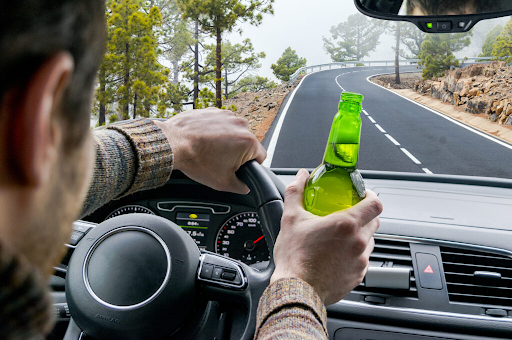The consequences of a DWI conviction can be severe, including hefty fines, license suspension, increased insurance rates, and even potential jail time. To increase your chances of a favorable outcome, you need contact a Law Office Defense of New Jersey DWI and Criminal Cases. Your lawyer will review your case and determine the ideal defenses to use. In this article, you learn effective strategies to defend your DWI case in New Jersey.
Motion to Suppress Evidence from Traffic Stop with Lack of Probable Cause
If law enforcement lacked probable cause to stop your vehicle, it may be possible to file a motion to suppress the evidence. In New Jersey, officers must have a reasonable suspicion that a traffic violation or crime has occurred before pulling you over. Hire a new jersey DUI lawyer to help show the court that the stop was unjustified. By proving this, you may have a strong case for dismissal.
Suppressing Breath Test Results Establishing Intoxication
Breath test results are often crucial evidence in DWI cases. However, these tests are not infallible and can be challenged. Factors such as improper calibration or administration, medical conditions, or interfering substances may lead to inaccurate readings. An experienced attorney can investigate the circumstances surrounding the breath test and challenge its validity, potentially leading to the suppression of this evidence.
Remove Your Statements Regarding Alcohol or Drug Use
Your statements made during the arrest process can be used against you in court. If possible, exercise your right to remain silent and avoid making any potentially incriminating statements regarding alcohol or drug use. Your attorney can review the circumstances of your arrest to determine if any statements were obtained in violation of your rights, potentially leading to their exclusion as evidence.
Challenging The Field Sobriety Tests
Field sobriety tests, such as the walk-and-turn, one-leg stand, and horizontal gaze nystagmus test, are subjective evaluations of a driver’s sobriety. These tests can be influenced by factors such as fatigue, nervousness, or medical conditions. Challenging the administration and interpretation of these tests can weaken the prosecution’s case against you.
Challenging The 20 Minute Observation Period
Before administering a breath test, New Jersey DWI/DUI law requires a 20-minute observation period to ensure accurate results. If the officer failed to comply with this requirement, it can be a basis for challenging the validity of the test results. Have your lawyer scrutinize the details of the arrest to determine if this crucial observation period was properly conducted.
Failure to Provide Discovery
During the pretrial phase, the prosecution is obligated to provide you with all relevant evidence, known as discovery. If the prosecution fails to fulfill this obligation, it can severely hinder their case. Your attorney can file a motion to compel the prosecution to provide the necessary discovery, and if they fail to do so, it may lead to the dismissal of your case.
Field Sobriety Conditions
In some cases, environmental factors or physical conditions may have influenced your performance on field sobriety tests. Poor lighting, uneven surfaces, adverse weather conditions, or certain medical conditions can impact your ability to perform these tests. Your attorney can investigate these conditions and present evidence to challenge the accuracy and reliability of the field sobriety tests.
Invalid Video Evidence
Video evidence, such as dashcam or bodycam footage, is often used to support a DWI charge. However, these recordings may contain errors or lack clarity, which can undermine their reliability. Your attorney can carefully review the video evidence to identify any inconsistencies, procedural errors, or issues with visibility that can be used to challenge its validity. If the video evidence is deemed invalid, it can significantly weaken the prosecution’s case against you.
Challenging DWI Checkpoints
While DWI checkpoints are intended to promote public safety, they can sometimes raise concerns regarding their legality and effectiveness. There are several ways to challenge the legality and constitutionality of DWI checkpoints in New Jersey.
If law enforcement failed to follow the established guidelines or violated your constitutional rights during the checkpoint, it may be possible to argue for the exclusion of any evidence obtained as a result of the checkpoint stop.
Challenging the CAD Report
A CAD (Computer-Aided Dispatch) report serves as a foundational piece of evidence in DUI cases. However, CAD reports are not infallible and can be subject to errors or inaccuracies. Law enforcement officers rely on their perceptions and judgment when documenting the details of a DUI arrest. However, officers are not immune to mistakes or biases.
By closely examining the officer’s observations and comparing them to other evidence or witness testimonies, you can identify inconsistencies or discrepancies that can be used to challenge the accuracy of the CAD report. Also, any deviations or violations of proper protocols can cast doubt on the reliability of the CAD report.
Technical errors or issues with the recording and transmission of information can also be grounds for challenging the CAD report. For example, errors in data entry, software glitches, or problems with the dispatch system itself.
When facing a DWI charge in New Jersey, you have legal rights and options for defense. Hiring an experienced DUI lawyer, can greatly enhance your chances of achieving a favorable outcome. At the Law Offices of Bartholomew Baffuto, we employ strategic defense strategies such as challenging the evidence, suppressing test results, and scrutinizing field sobriety tests, to build a strong defense for your DWI case. Speak to a DUI lawyer to protect your rights and fight your DWI charge in New Jersey.

